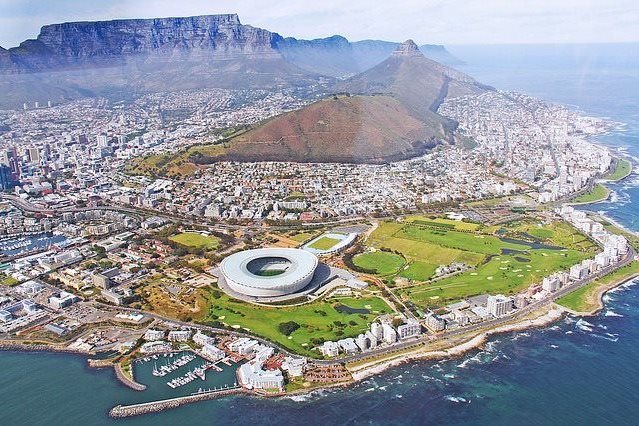
Top stories





FinanceA practical guide to building a better credit score in South Africa - Finance365
Finance365 6 hours

More news
















This trend is detailed in the February 2024 tourism report compiled by Wesgro, the Western Cape Government's tourism, trade, and investment promotion agency.
• Two-way passengers through Cape Town International Airport’s (CTIA) international terminal saw a 14% year-on-year growth in February 2024, with 294,443 two-way passengers, maintaining a steady growth rate on the back of a 13% increase recorded in January 2024.
• The domestic terminal recorded a 14% year-on-year growth in February 2024, with over 576,000 two-way passengers passing through the terminal.
• George Airport recorded over 59,000 two-way passengers in February 2024, approaching full recovery when compared to pre-Covid levels.
• In February 2024, 92% of the international air arrivals to Cape Town were from overseas markets (other than Africa) and 8% were from the rest of Africa.
• Between January and February 2024, the UK led as the top overseas air market to Cape Town, with Germany a very close second, followed by the USA, Netherlands and France in the top 5 positions.
• Between January and February 2024, Namibia led as the top air market from the rest of Africa to Cape Town, with Zimbabwe following closely in second position. Mozambique, Angola and Kenya followed in the rest of the top five positions.
Air arrivals from the rest of Africa to Cape Town during the period January to February 2024 reflected a full recovery from 7 out of the top 10 Africa source markets to Cape Town vs. Jan – Feb 2019. These markets included Zimbabwe (135%), Mozambique (18100%), Kenya (202%), Nigeria (112%), Tanzania (176%), Ghana (304%) and Botswana (1129%).
• 43 participating attractions across the six regions of the Western Cape recorded a total of 1,703,804 visitors between January and February 2024, a 20% growth in the number of visitors when compared to January – February 2023.
• The top 5 participating Western Cape attractions with the highest volume of visitors between January and February 2024 were recorded for: Table Mountain National Park (641,486), Table Mountain Aerial Cableway (227,511), Table Mountain National Park: Cape of Good Hope (199,781), Table Mountain National Park: Boulders (171,754) and Kirstenbosch National Botanical Garden (136,422).
• The top five highest year-on-year growth rates between January and February 2024 were recorded amongst the Western Cape’s nature/outdoor attractions: Stony Point Eco Venue (476%), Grootvadersbosch Eco Venues (386%), De Hoop Nature Reserve (188%), Gamkaberg Nature Reserve (135%) and Kogelberg Nature Reserve (130%).
"Data from SA Tourism shows that, for every 100 international visitors to the Western Cape, R2.1m in direct tourist spend is generated, contributing R500,000 to the provincial Gross Domestic Product, and enabling two local jobs. Which is why the continued excellent performance is such great news for economic growth and job creation in the province and South Africa," continues Minister Wenger.
"This success has not happened by chance and would not be possible without the hard work and dedication of our local tourism industry, the curiosity and trust of our precious tourists, and the determination of this government, entities and partners. I thank each and every person who continues to work hard to welcome our visitors and to ensure that they keep coming back, helping to grow our provincial economy, and creating many more jobs around the Western Cape," concludes Minister Wenger.